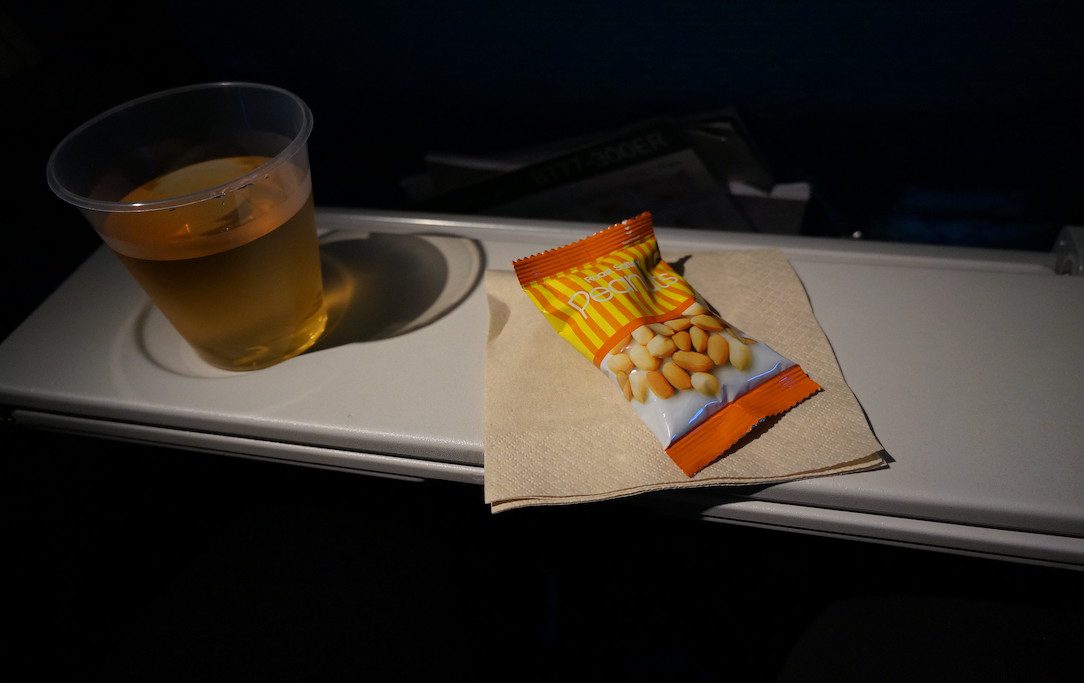Skift Take
Food-allergic flyers have long suffered inconsistent policies and enforcement when it comes to airlines protecting their health in the skies. That's why new clarity from the Department of Transportation is welcome news.
A Department of Transportation (DOT) ruling issued in May has strengthened the rights that air passengers with food allergies have when boarding an aircraft. It also means that some U.S. airlines may have to change their policies to avoid noncompliance.
The case in question was a complaint made by the parent of a seven-year-old girl who was denied early boarding on an American Airlines flight in September 2016. The gate agent’s refusal meant the parent was not able to wipe down the child’s seat area to avoid exposure to peanuts and tree nuts, a common step that allergy sufferers take to mitigate the risk of exposure when boarding an aircraft.
The Department of Transportation considers a severe food allergy a disability under the Air Carrier Access Act (ACAA) if exposure to the allergen restricts the passenger’s ability to breathe. However, travelers with allergies are often left to navigate a maze of inconsistent policies depending on what airline they fly.
In addition to early boarding, special provisions for allergic travelers can include not serving the allergen to other passengers during the flight and creating a buffer zone around an allergic passenger. However, even if an airline has a stated policy that’s accommodating to allergy-sufferers, campaigners say it’s not uncommon to turn up at a gate and find the airline staff are unaware or unwilling to enforce the airline’s stated policy. There have also been cases of allergic passengers being asked to leave a flight at the captain’s discretion.
The DOT’s May ruling stated that, per the ACAA, carriers “must offer pre-boarding to passengers with a disability who self-identify at the gate as needing additional time or assistance to board.” It then reaffirmed that “passengers with severe nut allergies are passengers with disabilities” meaning to deny them pre-boarding is to fall afoul of the ACAA.
American Airlines, when reached by Skift, said that it notified the DOT back in November, while the complaint was still being adjudicated, that it would be changing its policy. In December, the airline began allowing “passengers with peanut and tree nut allergies to pre-board its flights for the purposes of wiping down seating areas.”
Lianne Mandelbaum is a writer and campaigner on the rights of travelers with food allergies. She said that the DOT’s decision has “redefined the landscape” for food allergic passengers, because it means they won’t have to rely on airlines deciding to create amenable policies out of good will—they will be legally compelled to do so.
“Travel by air is a unique situation for those passengers with food allergies because you are far away from immediate medical care,” Mandelbaum said. “Taking basic precautions to mitigate the risk of an in-flight reaction, like pre-boarding, helps reduce any allergen residue. This decision means that on any airline, in the U.S., if pre-board is denied for food allergy it is violating federal law under the ACAA.”
Mandelbaum told Skift the ruling had already helped passengers assert their case to check-in agents, recounting a recent Facebook message from an allergy sufferer who showed a check-in agent a printout of an article regarding the DOT’s recent decision. The agent, who had previously said the passenger could not pre-board, allowed the passenger to do so.
The Daily Newsletter
Our daily coverage of the global travel industry. Written by editors and analysts from across Skift’s brands.
Have a confidential tip for Skift? Get in touch
Tags: airline, american airlines, Department of Transportation
Photo credit: A food allergic flyer’s worst nightmare. RosieTulips / Flickr
